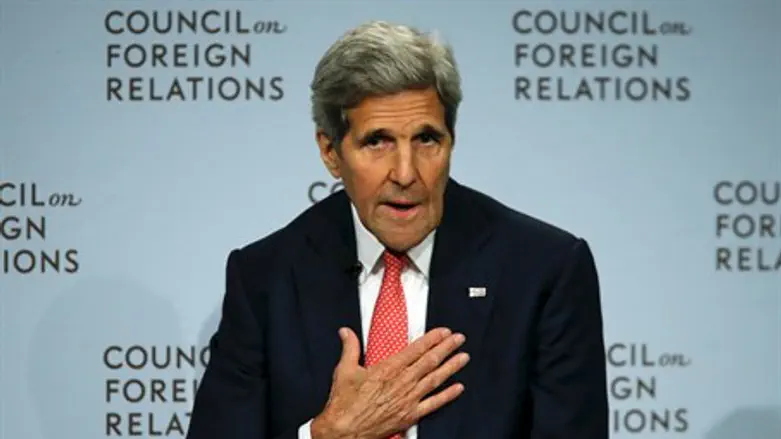
If the United States walks away from the nuclear deal with Iran, it would threaten ties with other world powers and could affect the dollar's position as the world's reserve currency, Secretary of State John Kerry warned on Tuesday.
"If we turn around and nix the deal and then tell them, 'You're going to have to obey our rules and sanctions anyway,' that is a recipe, very quickly ... for the American dollar to cease to be the reserve currency of the world," Kerry said at a Reuters Newsmaker event.
Defending the July 14 Vienna agreement between Iran and world powers that he helped to negotiate, Kerry deployed a new argument in a feverish battle to prevent lawmakers from killing it. Congress has until September 17 to act.
He warned of a potential loss of U.S. financial and political clout and added this was not something that would happen overnight but many countries were "chafing" under the present international financial arrangements.
He said U.S. Treasury experts "are doing a full dive on how this works and what the implications are. But the notion that we can just sort of diss the deal and unilaterally walk away as Congress wants to do will have a profound negative impact on people's sense of American leadership and reliability."
New York-based Boris Schlossberg, managing director of FX Strategy, BK Asset Management, challenged Kerry's reasoning. He said the dollar’s status could be compromised only if the United States was unable to compete economically on a global scale.
“The reality of the situation is that the U.S. dollar hasn’t been this strong in decades. The thought that it could be replaced as a reserve currency is laughable at this point on a geopolitical basis and nothing in the Iran deal even remotely touches upon that issue,” he added, according to Reuters.
President Barack Obama last week accused critics of the deal of making common cause with Iranian hardliners who chant “Death to America” and said some had beaten the drum for the Iraq war.
"You can squabble maybe with the choice of words," Kerry said when asked about Obama's comments. He stressed his view that the Iran deal should be argued on its merits. "I think the merits are very, very strong and I think the president does too," he said, according to Reuters.
The top diplomat also said it would be impossible for Iran to create a secret program for developing atomic fuel without the United States being able to detect it under the deal.
He also claimed the Iranians were open to discussing disputes in the Middle East, where Washington and its allies accuse Tehran of backing proxies in Iraq, Lebanon, Syria and Yemen.
Obama and Kerry have been on a fierce campaign in recent days to convince lawmakers in Congress to approve the deal. Congress has until September 17 to accept or reject it.
Republicans have objected to the deal as not tough enough to prevent Iran obtaining a nuclear weapon in the long run, while several Democrats have expressed support.
Obama has threatened to veto any legislation passed by Congress blocking the deal. In an interview with NPR on Monday, he claimed that Republicans who oppose the nuclear deal with Iran are doing so for political reasons more than anything else.
“Unfortunately, a large portion of the Republican Party, if not a near unanimous portion of Republican representatives, are going to be opposed to anything that I do, and I have not oftentimes based that on a judgment on the merits, but have based that on their politics,” said the president.
In an interview with CNN which aired on Sunday, Obama declared that he “doesn’t intend to lose” the battle with Congress over the Iran deal.
“If Congress were to reject this deal,” he warned in that interview, “then that central goal would be harder to achieve. And the international unity that we've brought about over the last several years would fray, not just with respect to sanctions, but with respect to the world's attitude about U.S. leadership and how they gauge who's at fault in this dispute between the United States and Iran.”

